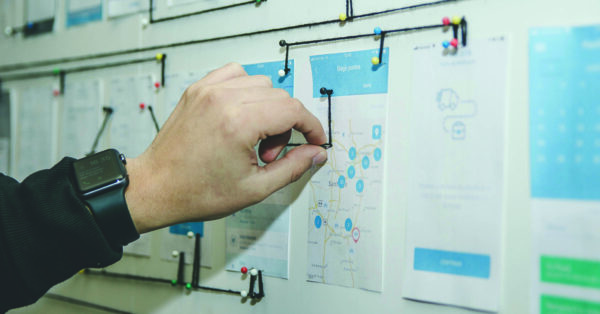Unfortunately, to find your ideal marketing communications agency, there isn’t an app or algorithm or reality show to apply for that can help—finding the ideal partner for your project is far less data-centric and relies more concretely on human interactions.
The good news is that agencies today have become very careful about differentiating themselves. While this makes the first step to finding the right one easier, there can still be obstacles ahead on the road to living happily-ever-after. Here are some steps you can take to foolproof your selection process—and hand out your final rose to the agency that fits your needs.
THE WISH LIST
It can be a huge task to put together a list of goals and expectations for a prospective agency. There’s no magic wand to getting everyone to agree on what is needed, when, and at what price. But all of that up-front work can be more manageable if you organize it along these lines.
- Identify who will be involved internally. Establish a working team and assign leadership responsibility for keeping the project on track. Make assignments and set expectations for each member. Come to a preliminary agreement about the nature and scope of the project so that you can submit a realistic budget and timeframe.
- Develop a vision and define the successful outcome. Beyond the specific marketing elements you need, develop a clear vision of what you plan to achieve—both long- and short-term. You’ll want to be open to fresh ideas from an agency about how to reach your objectives and tell your story well. Agree among yourselves, and later with your chosen agency, on the best method and metrics for measuring the success of your project.
- Decide what type of agency you will need. What core competencies and industry knowledge are required for what you want to accomplish? Some firms are soup-to-nuts, while others can unbundle services into just the component parts you need; some are industry specialists, and others focus on one aspect of the project.
THE SEARCH FOR A SUITABLE PARTNER
If only you could simply swipe left or right—it’s time to dig a little deeper and start researching agencies to invite on your first one-on-one date. Tap into your referral network, search online and find out who is responsible for the marketing campaigns you like. Hopefully you will come across a few that have successfully delivered projects similar to yours. Depending on what business you’re in, your own customers may be a good source of advice and recommendations.
Within days, you can identify dozens of candidates. Since you’re shopping for a partner with the creative and strategic capabilities that best fit your requirements, you’ll want to look at a range of service providers—both smaller and larger firms, creative boutiques and broadly strategic agencies—to validate your initial vision, or make some adjustments to it, as you continue honing your list of agencies.
Ultimately, three is a good number to shoot for —provide each candidate with a Request for Proposal, either in writing or verbally. The more focused your request, the more useful their proposals will be for you. By the deadline you set—say, three weeks—you should receive their proposals, packages and samples, which will allow you to confirm each agency’s:
- Industry focus and history;
- Philosophy and relationship style; and
- Quality of work and professional experience.
THE COURTSHIP
Every tale recounts some challenge to overcome before the happy ending. You can avoid unpleasant surprises by keeping the following edicts in mind:
- Be clear. If you have a limited budget, be up-front about it. Tell the agency what your preferences and expectations are, and ask how they would approach your project given those considerations. Also, be realistic about deadlines and ask the agency what you can do to help meet them. Clarify their process for handling delivery dates, changes in project scope, delays and cost overruns.
- Be transparent. You are investing in what may become a long-term relationship and you don’t want to waste anyone’s time. Let your candidates know what competition they’re up against. If a candidate is not right, eliminate them as soon as you know it. Like any breakup, it just gets messier further down the line.
- Be intentional. Make sure you thoroughly understand each agency’s proposal. You should ask any and all questions, especially: How will the project be managed? How will information flow between the organizations? If there are changes in the project, how are they communicated? Who handles them? Which types of changes will impact costs and timeframe?
BEFORE THE DECISION
Now is the time to discover if the capabilities your finalists claim are legitimate. Before making your final decision, employ the following safeguards:
- Verify all references.
- Talk to former clients and ask probing questions such as:
- Did the agency do all they said they would do for you?
- Did they deliver when promised?
- How accurate were their proposals?
- Did they meet or exceed your expectations?
- Were the actual costs greater than the proposed costs? If so, why?
- Would you recommend this agency?
You also want to get a sense of who they are—peak inside what the agency is really like. It would be typical to visit the agency for a walk-through of their offices, because in the words of Yankee great Yogi Berra, “You can observe a lot by watching.”
So what do you do in today’s Zoom world if that’s not possible? Your best bet is to leave it up to the agency—ask your finalists to show (not tell) you their agency culture. You will gain as much from their chosen method—pictures, videos, crashing a Zoom social, etc.—as you will from the method itself. You should be assessing creativity, working style, and enthusiasm.
Finally, verify the tenure and experience of the team who will be working on your project. Ideally, the employees responsible for the samples you liked so much will still be on board and available to work on your project.
Once you select and make the agency an offer, you will begin what will hopefully be a long and happy partnership.




